The Supreme Court is poised this week to issue a series of rulings covering the hot-button issues of affirmative action, student loan forgiveness, the intersection of religious freedom with free speech and employment law, and how much power state legislatures should have in the congressional redistricting process.
It was this month last year that the court issued landmark rulings overturning the Roe v. Wade abortion precedent, recognizing a right to carry a gun in public for self-defense, and reining in the government’s regulatory authority regarding the environment.
The Supreme Court is close to wrapping up its current term that began in October 2022, during which it has issued 49 opinions in argued cases. About another 10 opinions are expected before the court recesses for the summer, possibly at the end of the month. The court is scheduled to release more opinions at its sitting on June 27 but as of press time, it had not scheduled any additional sittings.
It seems unlikely that the court will release all the remaining opinions on June 27, so the justices will probably have to add new sittings to their calendar. Current court policy dictates that the court only issues opinions during scheduled courtroom sittings at which justices read summaries of the decisions aloud.
Affirmative Action at Colleges
Most Supreme Court justices seemed receptive on Oct. 31, 2022, to the argument that racially discriminatory admissions policies at U.S. colleges are unconstitutional and must be struck down.
The case is actually two separate appeals: Students for Fair Admissions (SFFA) v. Harvard College and SFFA v. University of North Carolina (UNC).
The Biden administration argued the policies should be allowed to continue indefinitely because they promote diversity.
Although left-wing activists such as advocates of Marxist-derived critical race theory contend that race-conscious policies are essential to dismantle the systemic racism they claim pervades the American experience, public opinion polls suggest the majority of Americans disapprove of using race in college admissions.
Critics cite then-Justice Sandra Day O’Connor, a moderate conservative who believed the policy was a necessary evil that must eventually end.
“We expect that 25 years from now the use of racial preferences will no longer be necessary to further the interest approved today,” she wrote in a 2003 opinion in Grutter v. Bollinger.
Making race-focused admissions decisions is “dangerous,” and a “deviation from the norm of equal treatment,” she wrote.
Harvard and UNC are, respectively, the oldest private college and the oldest public college in the United States.
In the Harvard case, a federal district judge found the school’s policy that was said to discriminate against Asian American applicants was not motivated by “racial animus … or intentional discrimination” and was “narrowly tailored to achieve diversity and the academic benefits that flow from diversity.” The U.S. Court of Appeals for the 2nd Circuit affirmed.
In the UNC case, a federal district judge upheld the school’s admissions policy because it uses race “flexibly as a ‘plus’ factor” and only as “one among many factors.”
Race should be used by UNC indefinitely because it is “interwoven in every aspect of the lived experience,” the judge ruled.
SFFA appealed to the U.S. Court of Appeals for the 4th Circuit, but before that court could rule on the case, also sought review from the Supreme Court, which was granted.
A 4-4 split in the Harvard case is a possibility because one of the justices won’t be participating in the decision.
Liberal Justice Ketanji Brown Jackson recused herself from the Harvard case because of her close ties to the school. However, liberal Justice Elena Kagan didn’t recuse herself from the case even though she was dean of Harvard Law School from 2003 to 2009.
Student Loan Relief
During oral arguments on Feb. 28, conservative members of the Supreme Court seemed skeptical of Biden administration statements that the government’s plan to partially forgive student loans was authorized by federal law.
The prevailing view among legal experts appears to be that the Supreme Court will strike down the loan forgiveness program as unconstitutional.
About 26 million people reportedly applied under the program before courts blocked it last year. Of that total, 16 million are said to have been approved before the government halted applications. The Supreme Court temporarily blocked the program in December 2022.
The government claims that it has the authority to grant debt relief, which would cancel as much as $20,000 in loan principal for 40 million borrowers.
U.S. Solicitor General Elizabeth Prelogar told the court that the federal Higher Education Relief Opportunities for Students Act (HEROES Act) gives the federal secretary of education blanket authority to grant loan forgiveness en masse, a contention several justices found fault with.
“COVID-19 is the most devastating pandemic in our nation’s history and … over the past three years, millions of Americans have struggled to pay rent, utilities, food, and many have been unable to pay their debts,” the top government lawyer told the court.
“If forbearance ends without further relief, it’s undisputed that defaults and delinquencies will surge above pre-pandemic levels.”
President Joe Biden unveiled the plan in August 2022 in a move critics decried as a legally dubious attempt to help Democrats in November midterms that year. The government said the plan could cost about $400 billion, but the Wharton School estimates the price tag could blow past $1 trillion.
Biden vetoed a congressional measure earlier this month that sought to block the program, which is premised on twin emergencies the Trump administration declared in March 2020 to combat the COVID-19 virus. The national emergency and the public health emergency enabled federal agencies to exercise expansive powers but Biden rescinded the declarations in May.
The Biden administration paused student loan payments and interest during the recent pandemic at an estimated cost of $100 billion, but then claimed last year that the pandemic gave it emergency authority to forgive student debts.
The pause expires in the fall. Interest restarts in September and loan payments resume in October, according to the government.
Republican lawmakers involved in the passage of the HEROES Act say it was enacted after the 9/11 terror attacks to provide student loan relief to military service members and their families, not for widespread debt forgiveness.
The Supreme Court heard two related cases dealing with the program, Biden v. Nebraska and Department of Education v. Brown, on the same day four months ago.
The Nebraska case springs from a lawsuit filed by six states.
The other appeal arises from a lawsuit filed by two borrowers who say the department improperly denied them the opportunity to participate in the public commenting process and that they would have urged greater debt relief.
Congressional Redistricting
Politics junkies are eagerly awaiting the court’s decision in Moore v. Harper, which was heard on Dec. 7, 2022.
At issue is the “independent state legislature doctrine,” under which Republicans argue the Constitution has always directly authorized state legislatures to make rules about federal elections in states without state courts intervening. Democrats say the doctrine is a fringe conservative legal theory that could endanger voting rights, enable extreme partisan gerrymandering in the redistricting process, and cause upheaval in election administration.
Conservatives like petitioner Tim Moore, Republican speaker of the North Carolina House of Representatives, said the Constitution is “crystal clear: State legislatures are responsible for drawing congressional maps, not state court judges and certainly not with the aid of partisan political operatives.”
When it was dominated by Democrats, the Supreme Court of North Carolina rejected the state electoral map drawn up by the state’s legislature for supposedly discriminating against Democrats.
But while the U.S. Supreme Court justices in Washington were deliberating Moore v. Harper, on Feb. 3, the new Republican majority on the state court voted to rehear the case.
That court reversed its prior ruling, holding on April 28 that the General Assembly—not judges—has sole authority over redistricting. The court’s majority opinion said there was “no judicially manageable standard by which to adjudicate partisan gerrymandering claims” and that courts “are not intended to meddle in policy matters.”
The U.S. Supreme Court ordered lawyers to file supplemental briefs on how to proceed in light of the state court ruling. The Biden administration has urged the court to dismiss the case as moot, but Moore’s lawyers say this is an important issue that the court needs to decide.
The U.S. Supreme Court has a multitude of options. It could end up dismissing the case as moot, embracing the independent state legislature doctrine, rejecting the doctrine, or issuing a compromise ruling.
Christian Designer
The Supreme Court seemed receptive to arguments on Dec. 5, 2022, by a Christian website designer who says Colorado’s law forcing her to create websites to celebrate same-sex weddings infringes on her constitutional rights.
Although the court has become increasingly protective of religious freedoms in recent years, those on the left say the court’s embrace of those freedoms comes at the expense of LGBT individuals.
At the hearing in 303 Creative v. Elenis, the Biden administration backed the law.
Left-wing activists have been targeting bakers for years for political purposes, asking Christian confectioners opposed to same-sex marriage to bake wedding cakes for gay marriage celebrations. When the bakers refuse, these activists sue under anti-discrimination laws, hoping to secure favorable legal precedents.
In the 2018 decision of Masterpiece Cakeshop v. Colorado Civil Rights Commission, the Supreme Court sided in a narrowly worded ruling with Jack Phillips, a Christian baker whom a gay couple had asked to create a custom cake to celebrate their union, finding a state human rights commission had violated his First Amendment right to free exercise of religion.
Website designer Lorie Smith claims she is being singled out by the state because she doesn’t support non-traditional marriage. Smith has said she will design custom websites for anyone, including LGBT individuals, so long as their message doesn’t conflict with her religious views. This means that she won’t promote messages that condone violence or encourage sexual immorality, abortion, or same-sex marriage. When clients want such messages expressed, Smith refers them to other website designers.
Smith’s attorney, Kristen Waggoner of the Alliance Defending Freedom, told justices her client “blends art with technology to create custom messages using words and graphics,” and “serves all people, deciding what to create based on the message, not who requests it.”
The state law “forces Ms. Smith to create speech, not simply sell it,” Waggoner said.
Conservative Justice Neil Gorsuch suggested to Colorado Solicitor General Eric Olson that the law enforced a kind of thought control.
Phillips of Masterpiece Cakeshop had to “go through a re-education training program pursuant to Colorado law, did he not, Mr. Olson?” the justice asked.
Olson rejected the characterization, saying Phillips had to go through “a process to make sure he was familiar with Colorado law.”
“Someone might be excused for calling that a re-education program,” Gorsuch replied.
Liberal Justice Sonia Sotomayor said Smith was supporting discrimination, the way a hypothetical luncheonette might “give gay couples a limited menu, not a full menu.”
Christian Postal Worker
The justices seemed receptive on April 18 to arguments of an evangelical Christian mail carrier who quit the U.S. Postal Service (USPS) after it refused to accommodate his wish not to work on the Sunday Sabbath.
The case is Groff v. DeJoy.
Like 303 Creative, the case is of intense interest to faith communities. Some liberal commentators have expressed concern that the court may go too far in the case, possibly giving religious people too much power to dictate workplace policies.
Gerald Groff of Pennsylvania began working as a mail carrier for USPS in 2012. He was a rural carrier associate who filled in for absent career employees.
The postal service initially tried to accommodate his request not to work on Sundays, but he quit in 2019 after the agency stopped exempting him from Sunday work.
He sued, claiming the postal service discriminated against him by refusing to accommodate his religion. The suit went forward under Title VII of the Civil Rights Act, which requires employers to provide reasonable accommodation for religious employees.
The U.S. Court of Appeals for the 3rd Circuit turned down Groff’s appeal, finding that exempting him would have imposed an undue hardship on the postal service.
In 1977, the Supreme Court narrowed the application of the religious provision of Title VII in Trans World Airlines v. Hardison, holding an employer suffers “undue hardship” if accommodating the employee forces the employer “to bear more than a de minimis cost.”
Groff’s attorney, Aaron Streett, told the justices that Hardison is a bad precedent because it violates the “promise” of Title VII that employees should not be forced to choose between their faith and their job.
“There’s no reason religious workers should receive lesser protection than those covered by other accommodation statutes,” he said.
Prelogar, U.S. solicitor general, urged the justices not to entirely discard the Hardison precedent, which the courts have been using for decades “when analyzing undue hardship under Title VII.”
A clarification of what Hardison actually means would be helpful, she said.
Groff’s absences “created direct concrete burdens on other carriers who had to stay on their shifts longer to get the mail delivered,” and this interfered with the timely delivery of mail and created “employee retention problems.”
Conservative Justice Brett Kavanaugh asked Prelogar how the court could deal with this case “without destabilizing the law.”
To preserve stability, the court needs “to make clear that you don’t need to redo all of the work that’s been done for five decades under the Hardison standard as properly understood,” Prelogar said.

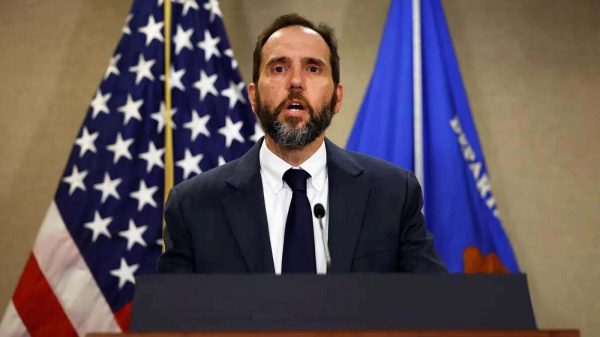



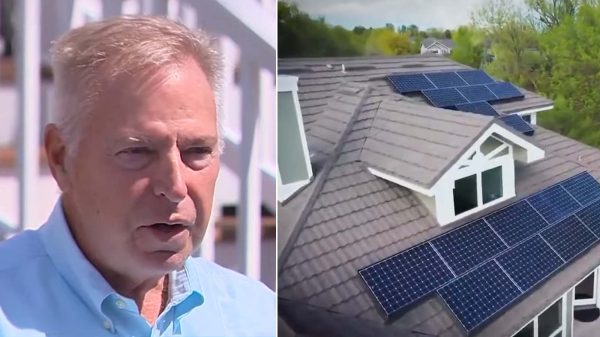






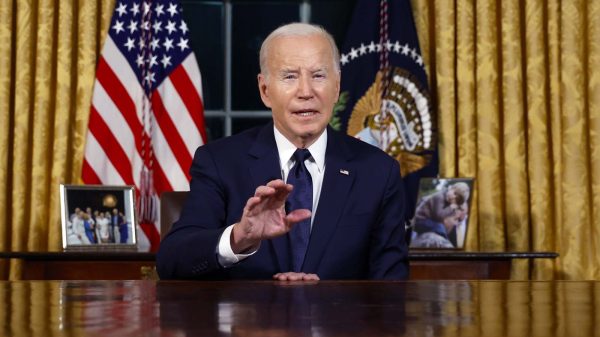

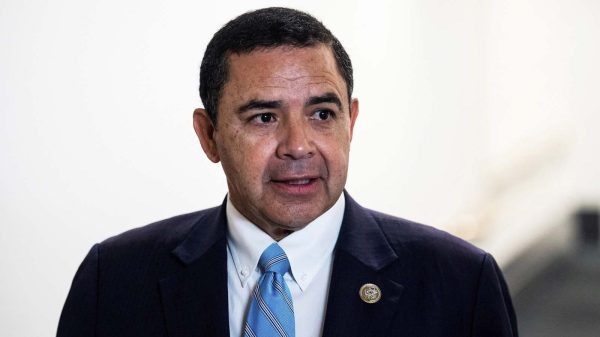
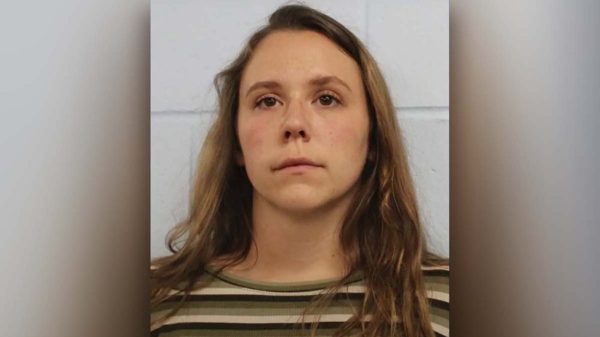
Have no faith in the Supreme Court anymore!! They just literally went against the Constitution and gave the Democraps more power to commit fraud in our elections!!!!
So, now the Framers’ and ratifiers’ clear language in the Constitution about state legislatures (not state governors or state courts) having the final say on electoral matters is the interpretation of right-wing kooks, and the Supreme Court just ruled that those who wrote the Constitution, adopted it, and ratified it really didn’t mean for final authority to rest with the state legislatures. They intended absolutely nothing by that language. The lawlessness continues, and the Court has opened even further the interference in our elections by activist bureaucrats and courts, and the controversy that will continue to ensue, for as long as this unraveling republic exists. And John Roberts is a truly pathetic lightweight as chief justice, and extremely political. It appears he holds some kind of spell over Barrett, who has completely collapsed as an intellectual jurist. Kavanaugh was never the conservative his Bush supporters claimed, as I repeatedly warned.
All this talk about a conservative court, propaganda pushed by the Democrats and their media, is baloney. It’s not a conservative court, regardless of the Dobbs decision (in which Roberts voted with the leftists). Dobbs merely left the issue of abortion to the states. It outlawed nothing. Thomas wrote the minority opinion in the Moore case, which is well worth reading. The majority’s opinion requires a strong stomach, so I wouldn’t read it after a meal.
Democrats are all about diversity but have no idea what it means. They think it means “everyone but white people”, when diversity actually would include EVERYONE. That is what is fair. It’s not at all fair to give priority to people over the color of their skin and toss merit out the window altogether. If white kids know they don’t stand a chance because their skin isn’t the right color, why would they even TRY to succeed in life?! Affirmative action is in itself, racist.
To me it looks like all White people need is to BE slaves, Liberals appear to be trying to get even, the problem is that Liberals have forgotten who founded our Country , signed the Declaration of Independence and Constitution, also who freed the Black slaves in our Constitutional Republic. They’ve also forgotten that Black Muslims in Africa sold their own Black people to the slave traders in America in the first place. I know that is a hard pill to swallow and most people won’t dare bring it up but before history has been completely destroyed or removed please research. The only diversity the Democrats are interested in is turning our Country into a Communist Sodom and Gomorrah, otherwise the blue states would no longer be blue,
Justice Kagan will never recuse herself any more than Justice Sotomayor will, neither have been harassed or threatened. From the look of things recently it may not matter, the court is probably on the side of the Liberals and starting to abandon the Constitution. I pray they aren’t and don’t but I’m beginning to wonder.
They had no difficulty abandoning help after the stolen election. And the media pretends there was no evidence because we couldn’t get any judge in American to take any of the cases—with Antifa hanging on to target them.
The only one I take issue with is the gay baker. A place of business should reserved the right to refuse service to whomever they choose. They are the only ones that stand to suffer from the lack of income. It seems that the gay community goes out of it’s way to target/harass conservative Christian businesses to push their agenda. Simple solution is to go find another baker. I wonder if they’ve tried this with Muslims yet?